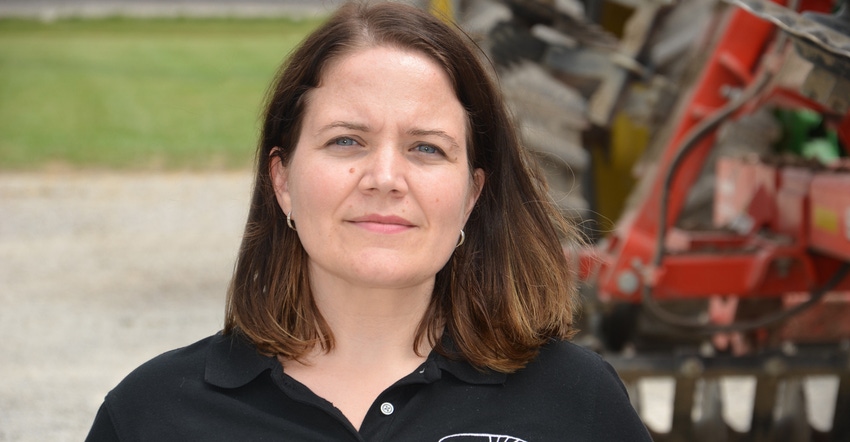October 8, 2018

One night earlier this fall, Greg Lake and the Allen County Soil and Water Conservation District hosted a field day for farmers at Remke Farms near Harlan, Ind. Some 100 farmers checked out the latest in conservation equipment, toured cover crop plots and shared ideas on making cover crops more successful.
The next day Lake, a district employee and farmer, and the SWCD hosted another field day on the same farm. Only this one was for people who work with farmers. Most of them don’t farm.
“Technicians and staff in soil and water districts, the Natural Resources Conservation Service and state agencies need training from time to time, too,” Lake says. “We decided they should see similar things to what farmers were seeing, so we brought them to the same farm with the same equipment and same cover crop plots.”
That’s not all that was unique about this field day, however. The people attending weren’t just from Indiana. In fact, there were more people from other states. Conservationists and state agency staff from Ohio and Michigan attended. What everyone who attended has in common is that in some capacity, they advise farmers who farm in the Western Lake Erie Basin. The area came under scrutiny a few years ago when an algal bloom forced the city of Toledo, Ohio, to shut down water to all residents for an entire weekend. Toledo pulls drinking water from Lake Erie.
Train the trainers
Besides Lake, the key person pulling the field day together was Andrea Stay. She is the grants and training coordinator for the Michigan Agriculture Environmental Assurance Program, known as MAEAP, for the Michigan Department of Agriculture.
“Our goal for this field day was to bring technicians and partners together who work in the Western Lake Erie Basin,” Stay says. “We did a gathering in Ohio last year, but this was our first time as a group on a farm. We wanted to present more technical information this time that our people can take back and share with farmers. The end goal is to make a positive impact in the Western Lake Erie Basin.”
One thing many of the technicians and employees from each of the three states wanted to learn more about was best management practices for farmland, Stay says. What practices will help keep nutrients on the land and out of the water?
Agriculture gets blamed for a sizable share of problems such as the Lake Erie algal bloom, even though others contribute to the outcome. The goal here was for the people who work with farmers to get a better understanding of how they can advise farmers when it comes to preventing future loss of nutrients that eventually wind up in Lake Erie.
“We think it’s important for farmers to know that as professionals, we take conservation and preventing nutrient loss seriously, too,” Stay says. “We need to work together with farmers and be there for each other.
“There is value in getting everyone who works with farmers in the basin together occasionally because what we do matters. We need to be on the same page if we want to keep doing things that will make a difference which the public can see.”
You May Also Like




